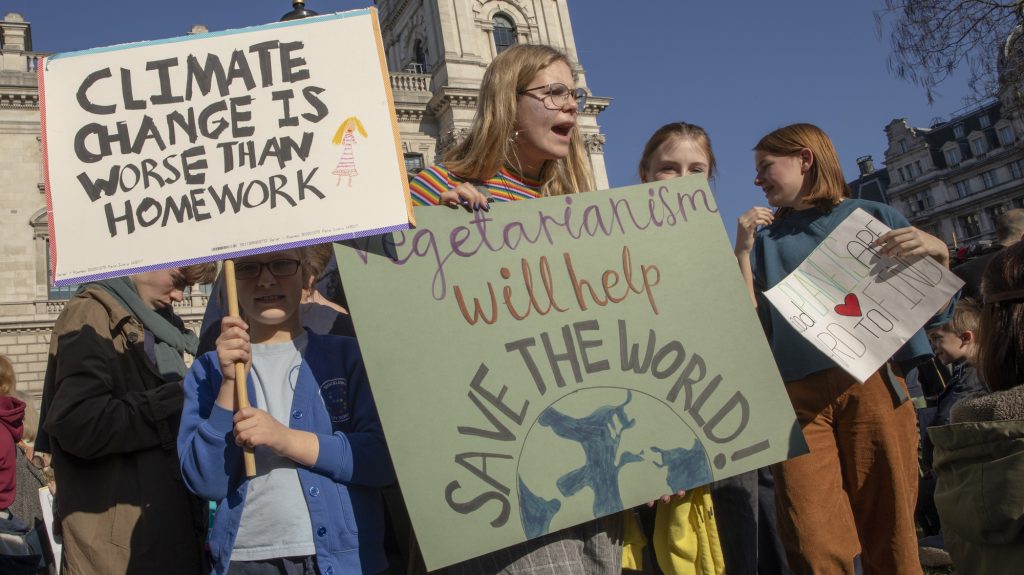Young people demanding action on climate change are building a mass movement like we South Africans did to end injustice.
In 1980, at the age of 15, I led a student protest that got me expelled. Every day that I went to Durban city centre, I could see that the schools for white children were different to mine. Even though adults told us that we could not make a difference, once our eyes were opened to this injustice, there was no alternative. My friends and I were determined to make a stand against the glaring inequality in South Africa.
Those who lived under apartheid know exactly what it means to live with an inherent threat to your existence. But rather than give in to the fear that it was too big to take on, we had no choice but to trust in the power of our individual actions. There are many lessons here for the climate change movement.
I was devastated to have been expelled from my school, but it did not stop me from demanding change. I knew I was not alone.
Schools across South Africa became a powerful site for struggle after a student protest in Soweto in 1976 ended with extreme police brutality. Young people, who for all their lives had been told they were not equal and had no power, organised major protests and boycotts at their schools, which garnered national and international attention.
Throughout history, our societies have owed a debt to young people who have recognised that sometimes you need to break the rules to create space for change. It was the strategy of civil disobedience, led by young people, that set South Africa on the path to ending apartheid. The “defiance campaign” of 1952 represents the best of this: 8,000 black South Africans – led by the likes of a young Nelson Mandela – deliberately broke discriminatory laws to court arrest. Their aim was to fill the jails to overflowing. While the authorities eventually crushed the campaign, it raised the visibility of this important justice movement and galvanised mass support.
Just like South Africa’s youth leaders did decades ago, I believe young people striking for climate action today are building exactly the kind of mass movement needed to pressure leaders into acting. There have been multiple misguided attempts by politicians to patronise, belittle or discredit the teenagers leading these strikes. But for all their attempts at deflection, nothing can hide the fact that our leaders are failing to stop climate change. In fact they continue to spread lies, fund the fossil fuel industry and wrongfully claim that it will be too expensive to act.
Meanwhile, we have fully entered the climate crisis and left behind a stable environment that enabled humanity to thrive. The kind of warming we see today, where wildfires, heatwaves, floods, droughts and storms are getting worse and worse, is only the beginning. If you feel immobilised by fear at the thought of this, imagine how it must feel for a child. And yet, as throughout history, young people have shown us that it is possible to overcome our fears by standing up for our rights. In August 2018, fires raged in forests of the Arctic Circle in Sweden, and Greta Thunberg decided to start her strike outside the Swedish parliament.
These school strikes for climate have snowballed and on Friday more than 1,300 strikes are expected in nearly 100 countries around the world. We should be hanging our heads in shame that it has fallen on young people and children to miss school and take on the overwhelming burden of fighting this threat to human survival. But we have no time for that. We now have 11 years to halve our greenhouse gas emissions by 2030, and work towards bringing them down to net zero by 2050 to give us a chance for survival. This is not an invitation to procrastinate, but an impetus to act.
If our leaders and indeed other adults are still clueless as to what they can do, my one piece of advice is: act like the kids.
• Kumi Naidoo is the Secretary General of Amnesty International. He was formerly executive director of Greenpeace and the launch director of Africans Rising


